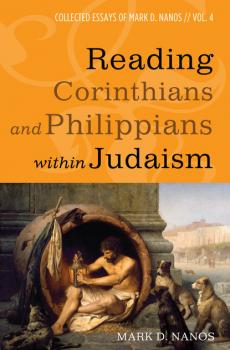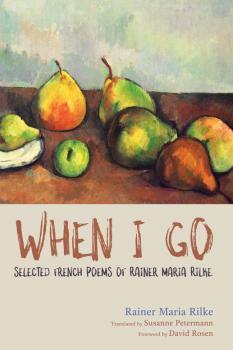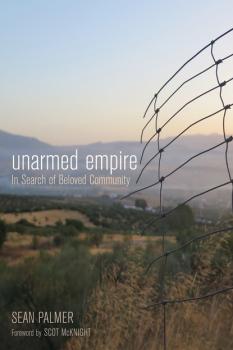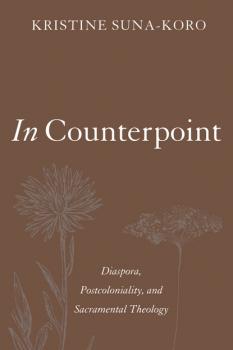MREADZ.COM - много разных книг на любой вкус
Скачивание или чтение онлайн электронных книг.Being Christian in the Twenty-First Century
Being Christian in the Twenty-first Century was written to help struggling and doubting Christians develop an understanding of Christianity that avoids literalism, creeds, and doctrines–all factors which seem to be driving people away from the church. The book is well suited for individual or group study, complete with a study guide and sample lesson plans. It responds to the call for theological reform advocated by many contemporary clergy and religious leaders. Being Christian does not restate orthodox positions or drift into fundamentalism or sentimentalism. Instead it draws from a broad base of historical, theological, archaeological, and sociological scholarship to place Scripture within its original context, yet present it within a perspective suitable for the twenty-first-century mind. Being Christian is scholarly, yet readable, interesting, and often provocative. One reviewer put it this way, «the book reminds me of a baseball pitcher with a long wind up and a hard fastball getting better in every inning.» By building upon progressive thought available today and throughout history, it offers an important resource for Christians and would-be Christians seeking a more fulfilling and thoughtful faith journey.
FBI Girl
In a house teeming with life, young Maura, voted the Most Quiet Girl in Catholic school, notices everything but says little. Eager to penetrate the secret world of her father, FBI agent Joe Conlon, she is drawn to the bureau drawer where he places his badge at night.
The time is the late 1960s, and Vietnam and the Cold War are fomenting unrest outside Maura's suburban Los Angeles home. Inside, the Conlons and their five children are still bound by tradition: baseball games, Sunday dinners of roast beef and mashed potatoes, and The FBI on TV. Under the watchful gaze of J. Edgar Hoover's picture, Maura's mother, a former New York bathing beauty, remains a housemaker even as she slips out for assertiveness training.
And there's the one unshakable rule of all: Joe Conlon never talks about his job. In fact, he rarely speaks at all. Believing that he communicates in code, Maura is determined to crack it. She uses clues gleaned from Nancy Drew mysteries, eavesdrops on adult conversations, and spins larger-than-life fantasies in her head, with her younger brother, Joey, who has Down syndrome, at her side.
But her flights of fancy turn sober with a murder in the family. Suddenly her father's silence speaks volumes, and she learns a lesson from him abut fierce love during a time of devastating loss.
Bathed in luminous nostalgia, resonating with hilarious and painful memories, FBI GIRL is the coming-of-age story of a highly imaginative girl and a passionate homage to family bonds, the trials that test them, and the triumphs that make them stronger.
Reading Corinthians and Philippians within Judaism
The commentary tradition regarding 1 Corinthians unanimously identifies the «weak» as Christ-followers whose faith was not yet sufficient to indulge in the eating of idol food with indifference, as if ideally Paul wanted them to become «strong» enough to do so. Commentaries also do not hesitate to explain that Paul advised the Corinthians that he behaved like non-Jews (e.g., ate idol food) in order to win non-Jews to Christ, convinced that he was free from any obligation to observe Jewish covenantal behavior–except when he expediently chose to mimic Jewish behavior in order to win Jews to Christ. Similarly, commentators continue to conclude that in Philippians Paul called Jews «dogs» for upholding the value of undertaking circumcision, and that he renounced such identification as «mutilation.» None of these interpretations likely represent what Paul meant originally, according to Nanos. Each essay explains why, and provides new alternatives for re-reading Paul's language «within Judaism.» In this process, Nanos combines investigations of relevant elements from Jewish sources and from various Cynic and other Greco-Roman contemporaries, as well as the New Testament.
When I Go
Rilke's French poetry appears here for the first time in readable, musical versions. Largely unknown and rarely collected, these poems were written during the euphoria Rilke felt after having completed his greatest German works, the Duino Elegies and the Sonnets to Orpheus. At the same time, Rilke was growing increasingly ill with a rare, undiagnosed form of leukemia. He died just four short years into the production of these poems, and death appears in them as «a kindly, unfamiliar figure» to be faced with courage and surrender. Five series of poems are featured: Roses, Windows, Affectionate Tribute to France, Valaisian Quatrains, and Orchards.
Energy in Orthodox Theology and Physics
It is well known that energy is a fundamental concept in physics. Much less well known is that it is also a key concept in Eastern Christian or Orthodox theology. This book from Dr. Stoyan Tanev–a physicist, innovation management scholar, and theologian–provides a comparative analysis of the conceptualizations of energy in Orthodox theology and in physics, and demonstrates the potential of such comparison for a better understanding of these two quite different domains of human enquiry. The book explores the rediscovery of the Byzantine Church's teaching on the Divine energies in twentieth-century Orthodox theology, and offers new insights about the key contributions of key theologians such as Sergius Bulgakov, George Florovsky, John Meyendorff, Christos Yannaras, and Thomas Torrance. Where do the understandings of energy in theology and physics meet? The author argues that the encounter between theology and physics happens at the level of quantum physics, where the subtle use of words and language acquires a distinctive apophatic dimension. His comparative approach focuses on the epistemological struggles of theologians and physicists. According to Tanev, this focus on the struggles of knowing offers a new way to look at the dialogue between science and theology.
Earnest
B. T. Roberts was born in a small farming community in western New York, on July 25, 1823. By the time of his death in 1893, he had made a profound impact on church and society. Roberts's writing, preaching, and ministry focused on true conversion, the disciplines of the Christian life, and holiness. Rejecting «prosperity theology,» he argued for simplicity, generosity, and mission. A prophet of dissent, he vigorously promoted abolition, prohibition, economic justice, and the equality of women. Along the way, he founded Free Methodism and an educational institution that is thriving 150 years later. Roberts exhibited rare and impeccably balanced traits. He displayed the courage and boldness to dissent, as well as the political savvy and communication skills to bring people together. He was a visionary who displayed patience, tact, and pragmatism. His idealism did not obliterate his attention to details and crucial distinctions. He made people feel loved, respected, and challenged; he was authentic. In his dealings in church and world, we see creativity and flexibility grounded in integrity. Earnest settles in to the particularities of this life well lived, showing the human spirit, divine power, and practicalities of progress.
Christian Hope among Rivals
Hope is a widespread, if not a universal, human experience. For centuries, followers of Jesus of Nazareth have ordered their lives around a central hope. How is their experience similar to or different from others who live by hope? This book seeks an answer in the idea that living by hope involves living within a peculiar story of the world–an incomplete story. The stories that shape these hopes are threatened by evil, however it may be defined. The hopeful struggle as characters caught up in plots that move toward resolution. They exercise an as-yet unverified hope that evil will not prevail. In this regard, the hope of Christians is similar to others. Yet, it is different because they wait for the God of Jesus to transform the world to match the promise he made to Abraham. To arrive at this conclusion, this book takes a detour through four model life-organizing stories. Christians and participants in other stories-of-the-world may not agree on the ultimate ground for hope. However, taking a detour into the hopeful experience of another may help uncover a place where rivals can stand together long enough to talk.
Good and Comfortable Words
Thanks to coded notes taken by the teenager John Pynchon, this volume transports the reader, virtually, back to Sundays in the seventeenth century, when the community gathered to listen to the Rev. George Moxon. The setting was Springfield, Massachusetts, founded in 1636 by John's father William Pynchon. As a note-taker, John recorded just what he heard in this rare resource, which allows the reader to listen in on the weekly sermons he documented in the 1640s.
This symbol-by-symbol transcription into a word-for-word text preserves the character of the minister's original remarks, and reveals Moxon as an able, engaging speaker who offered encouragement–and challenge–to the growing plantation he faithfully served through its earliest years on the edge of a wilderness. Not only do the sermons in this collection provide snippets of popular theological discourse at particular moments in the 1600s; they also point to issues of the day, and they help us get inside the thoughts and word patterns of that era.
Unarmed Empire
Shunned. Condemned. Controlled. Describing church, believers and nonbelievers deploy stinging terms to define an imperial, culturally privileged, and powerful American force. Church has become synonymous with shame, exclusion, and hostility. This is not the church of Jesus. American Christians are victims of a deliberate and shortsighted scheme designed to identify and defeat religious, cultural, and sexual Others. From the language of «makers and takers,» to «if you're not for us, you're against us,» to the continual suggestion that we are soldiers in a constant series of wars–the war on women, the war on the family, the war on Christians, the war on Christmas, the war on terror, and much more–Christians are near the heart of enmity.
The New Testament, however, seeks to create an alternative community–a community devoid of fear, wherein God's love and acceptance are mediated to all people through the grace of Jesus. In Unarmed Empire, Sean Palmer reclaims the New Testament's vision of the church as an alternative community of welcome, harmony, and peace. Unarmed Empire is for everyone who's been misled about church. It's for everyone who feels blacklisted by believers, everyone who has been hurt. It's for everyone longing for a purer experience of church.
In Counterpoint
What does postcoloniality have to do with sacramentality? How do diasporic lives and imaginaries shape the course of postcolonial sacramental theology? Neither postcolonial theorists nor sacramental theologians have hitherto sought to engage in a sustained dialogue with one another. In this trailblazing volume, Kristine Suna-Koro brings postcolonialism, diaspora discourse, and Christian sacramental theology into a mutually critical and constructive transdisciplinary conversation. Dialoguing with thinkers as diverse as Edward Said and Gayatri Spivak as well as Francis D'Sa, S.J., Martin Luther, Mayra Rivera, and John Chryssavgis, the author offers a postcolonial retrieval of sacramentality through a robust theological engagement with the postcolonial notions of hybridity, contrapuntality, planetarity, and Third Space. While exploring the methodological potential of diasporic imaginary in theology, this innovative book advances the notion of sacramental pluriverse and of Christ as its paradigmatic crescendo within the sacramental economy of creation and redemptive transformation. In the context of ecological degradation, In Counterpoint argues that it is vital for the postcolonial sacramental renewal to be rooted in ethics as a uniquely postcolonial fundamental theology.









